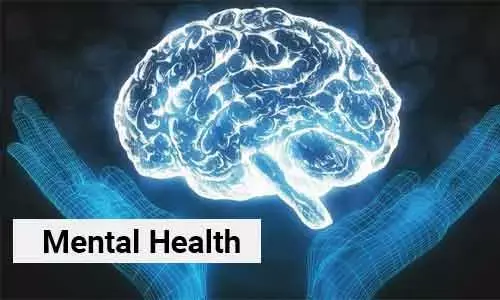- Home
- Medical news & Guidelines
- Anesthesiology
- Cardiology and CTVS
- Critical Care
- Dentistry
- Dermatology
- Diabetes and Endocrinology
- ENT
- Gastroenterology
- Medicine
- Nephrology
- Neurology
- Obstretics-Gynaecology
- Oncology
- Ophthalmology
- Orthopaedics
- Pediatrics-Neonatology
- Psychiatry
- Pulmonology
- Radiology
- Surgery
- Urology
- Laboratory Medicine
- Diet
- Nursing
- Paramedical
- Physiotherapy
- Health news
- Fact Check
- Bone Health Fact Check
- Brain Health Fact Check
- Cancer Related Fact Check
- Child Care Fact Check
- Dental and oral health fact check
- Diabetes and metabolic health fact check
- Diet and Nutrition Fact Check
- Eye and ENT Care Fact Check
- Fitness fact check
- Gut health fact check
- Heart health fact check
- Kidney health fact check
- Medical education fact check
- Men's health fact check
- Respiratory fact check
- Skin and hair care fact check
- Vaccine and Immunization fact check
- Women's health fact check
- AYUSH
- State News
- Andaman and Nicobar Islands
- Andhra Pradesh
- Arunachal Pradesh
- Assam
- Bihar
- Chandigarh
- Chattisgarh
- Dadra and Nagar Haveli
- Daman and Diu
- Delhi
- Goa
- Gujarat
- Haryana
- Himachal Pradesh
- Jammu & Kashmir
- Jharkhand
- Karnataka
- Kerala
- Ladakh
- Lakshadweep
- Madhya Pradesh
- Maharashtra
- Manipur
- Meghalaya
- Mizoram
- Nagaland
- Odisha
- Puducherry
- Punjab
- Rajasthan
- Sikkim
- Tamil Nadu
- Telangana
- Tripura
- Uttar Pradesh
- Uttrakhand
- West Bengal
- Medical Education
- Industry
Teens participation in extracurriculars with less screen time tied to better mental health

A new study from UBC researchers finds that teens, especially girls, have better mental health when they spend more time taking part in extracurricular activities, like sports and art, and less time in front of screens.
The study, published in the journal Preventive Medicine, found that spending less than two hours per day of recreational screen time (such as browsing the internet, playing video games, and using social media) was associated with higher levels of life satisfaction and optimism, and lower levels of anxiety and depressive symptoms, especially among girls, the researchers found. Similarly, extracurricular participation was associated with better mental health outcomes.
"Although we conducted this study before the COVID-19 pandemic, the findings are especially relevant now when teens may be spending more time in front of screens in their free time if access to extracurricular activities, like sports and arts programs is restricted due to COVID-19," says the study's lead author Eva Oberle, assistant professor with the Human Early Learning Partnership in the UBC school of population and public health. "Our findings highlight extracurricular activities as an asset for teens' mental wellbeing. Finding safe ways for children and teens to continue to participate in these activities during current times may be a way to reduce screen time and promote mental health and wellbeing."
Data for this study was drawn from a population-level survey involving 28,712 Grade 7 students from 365 schools in 27 school districts across B.C. The researchers examined recreational screen time such as playing video games, watching television, browsing the internet, as well as participating in outdoor extracurricular activities such as sport and art programs after school. They then compared its association with positive and negative mental health indicators.
Highlights of the study's findings include the following:
- Adolescents who participated in extracurricular activities were significantly less likely to engage in recreational screen-based activities for two or more hours after school
- Taking part in extracurricular activities was associated with higher levels of life satisfaction and optimism, and lower levels of anxiety and depressive symptoms
- Longer screen time (more than two hours a day) was associated with lower levels of life satisfaction and optimism, and higher levels of anxiety and depressive symptoms
- Differences among boys and girls, with longer screen time negatively affecting girls' mental health more significantly than boys
- Among both boys and girls, however, mental health was strongest when teens both participated in extracurricular activities and spent less than two hours on screen time
Oberle says further research is needed to examine why the negative effects of screen time were more detrimental for girls than for boys. She also hopes to focus future research on the effects of different types of screen time.
"We do know that some forms of screen time can be beneficial, like maintaining connections with friends and family members online if we cannot see them in person, but there are other types of screen time that can be quite harmful," she says. "There are many nuances that are not well understood yet and that are important to explore."
https://www.sciencedirect.com/science/article/abs/pii/S0091743520303157?via=ihub
Hina Zahid Joined Medical Dialogue in 2017 with a passion to work as a Reporter. She coordinates with various national and international journals and association and covers all the stories related to Medical guidelines, Medical Journals, rare medical surgeries as well as all the updates in the medical field. Email: editorial@medicaldialogues.in. Contact no. 011-43720751
Dr Kamal Kant Kohli-MBBS, DTCD- a chest specialist with more than 30 years of practice and a flair for writing clinical articles, Dr Kamal Kant Kohli joined Medical Dialogues as a Chief Editor of Medical News. Besides writing articles, as an editor, he proofreads and verifies all the medical content published on Medical Dialogues including those coming from journals, studies,medical conferences,guidelines etc. Email: drkohli@medicaldialogues.in. Contact no. 011-43720751


